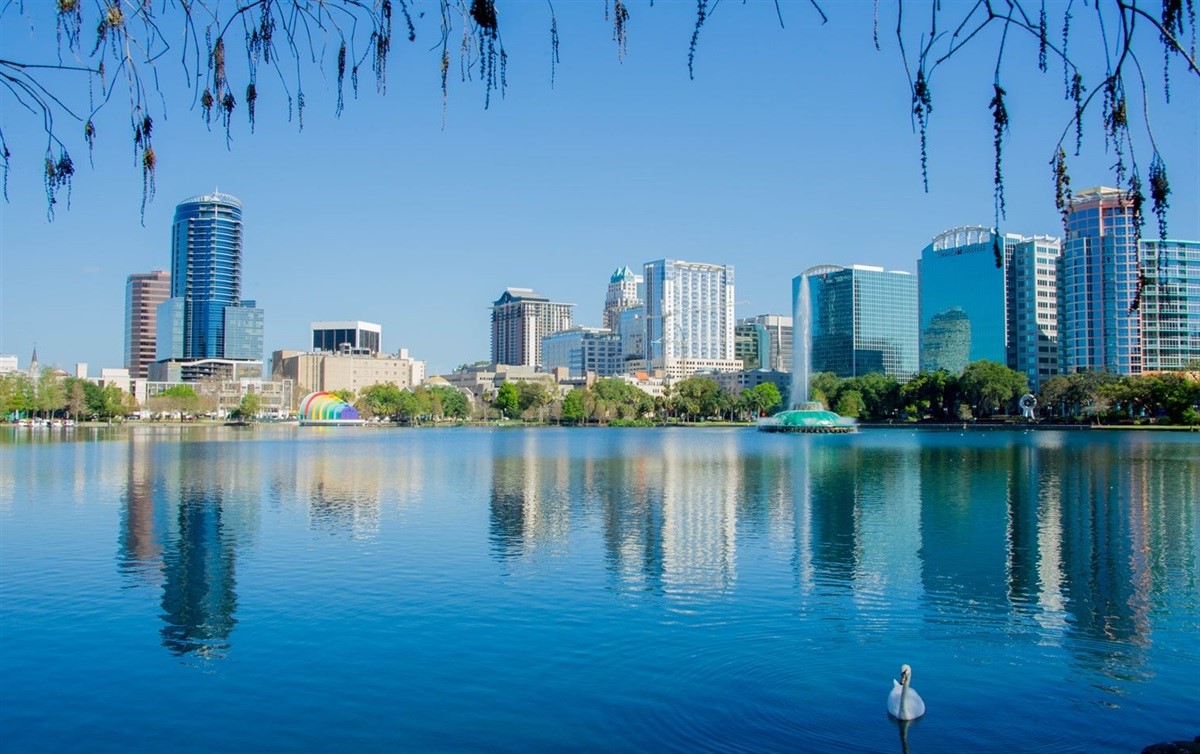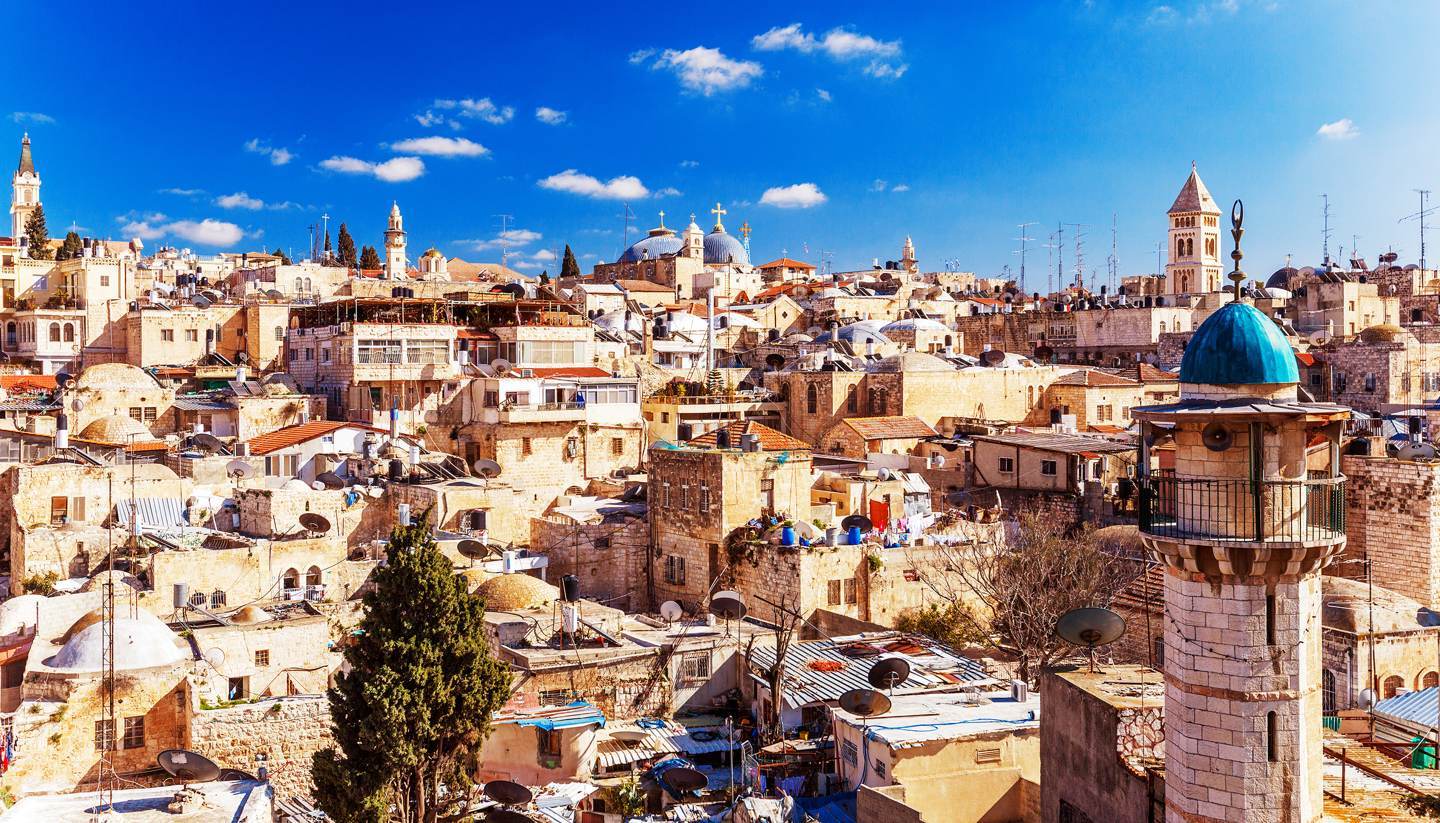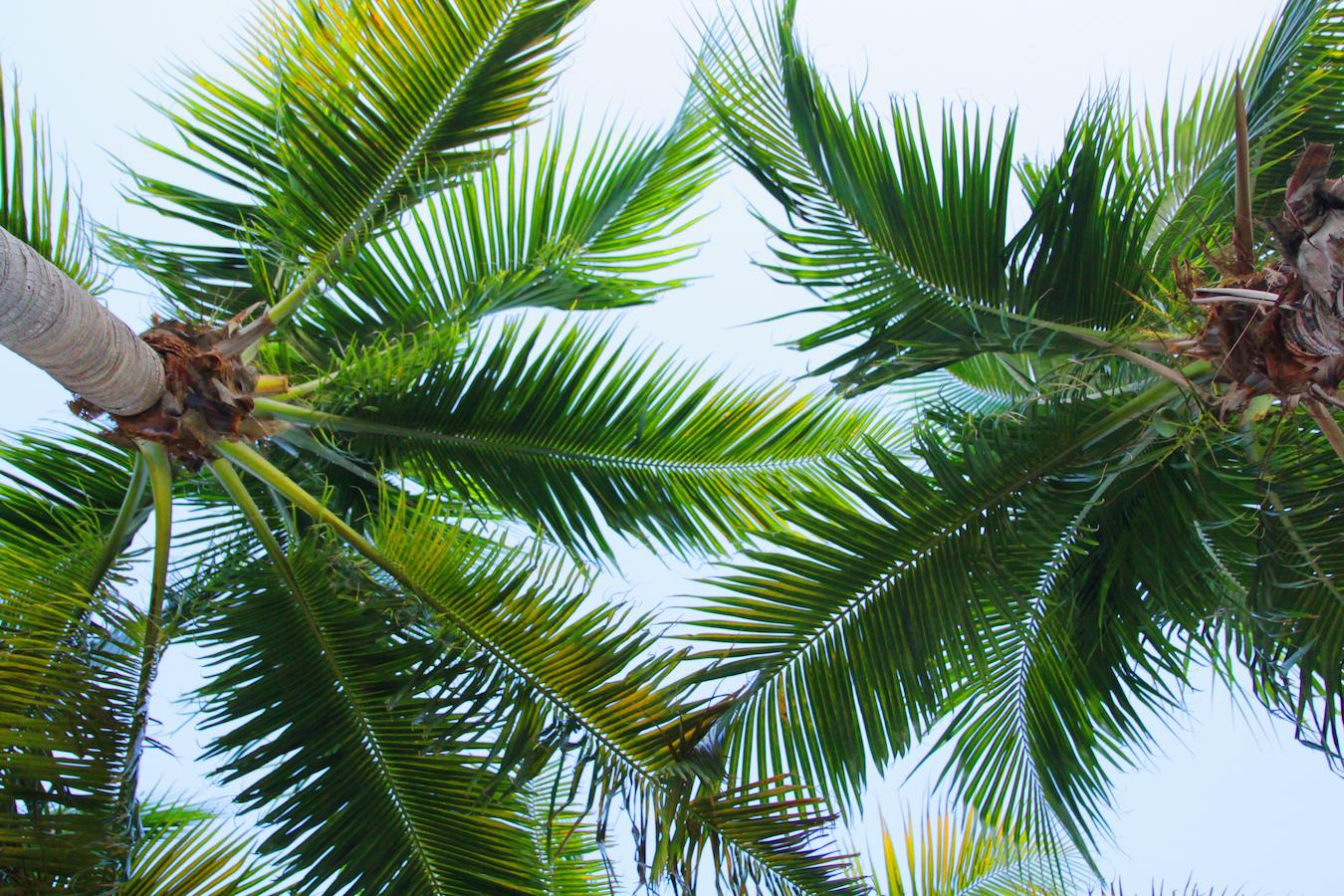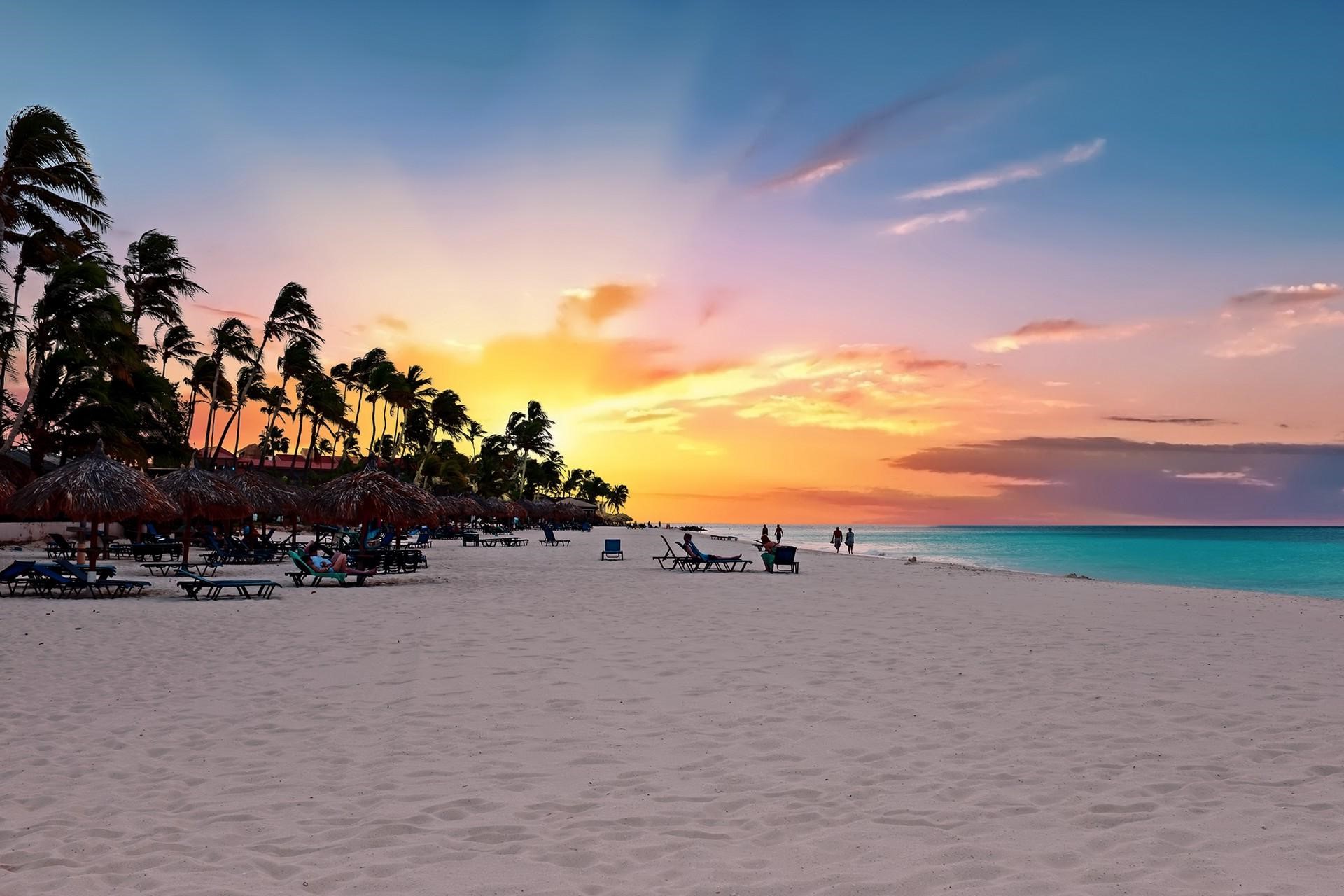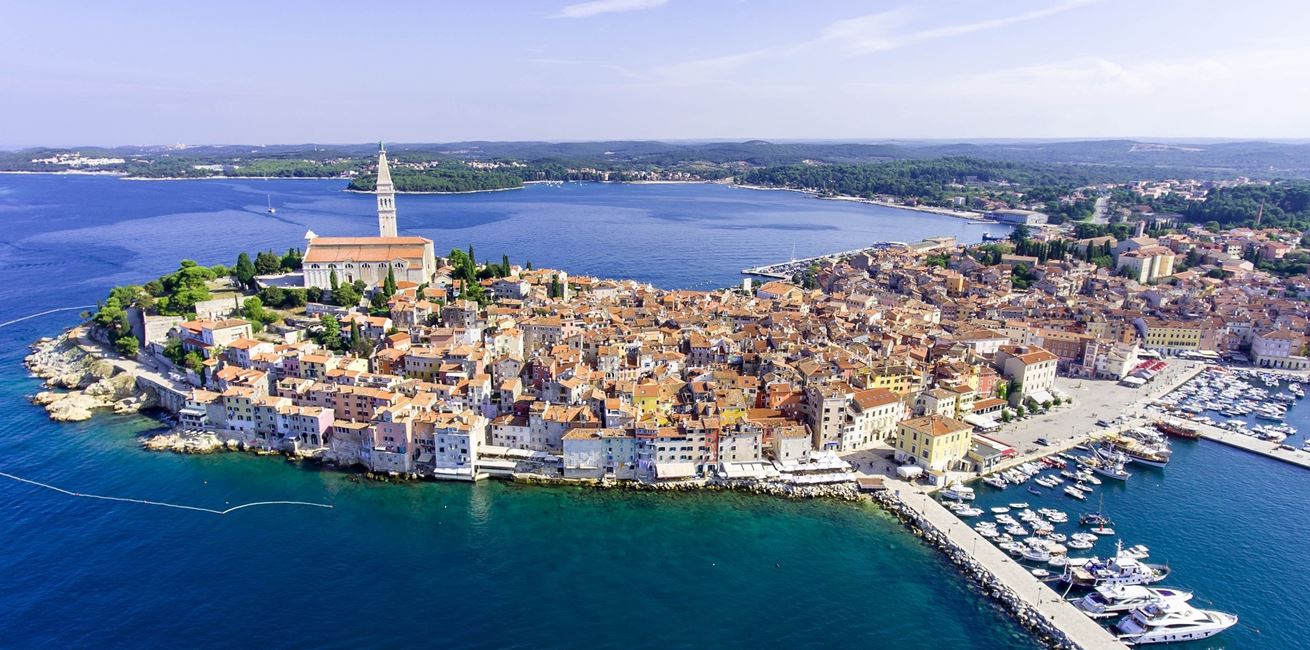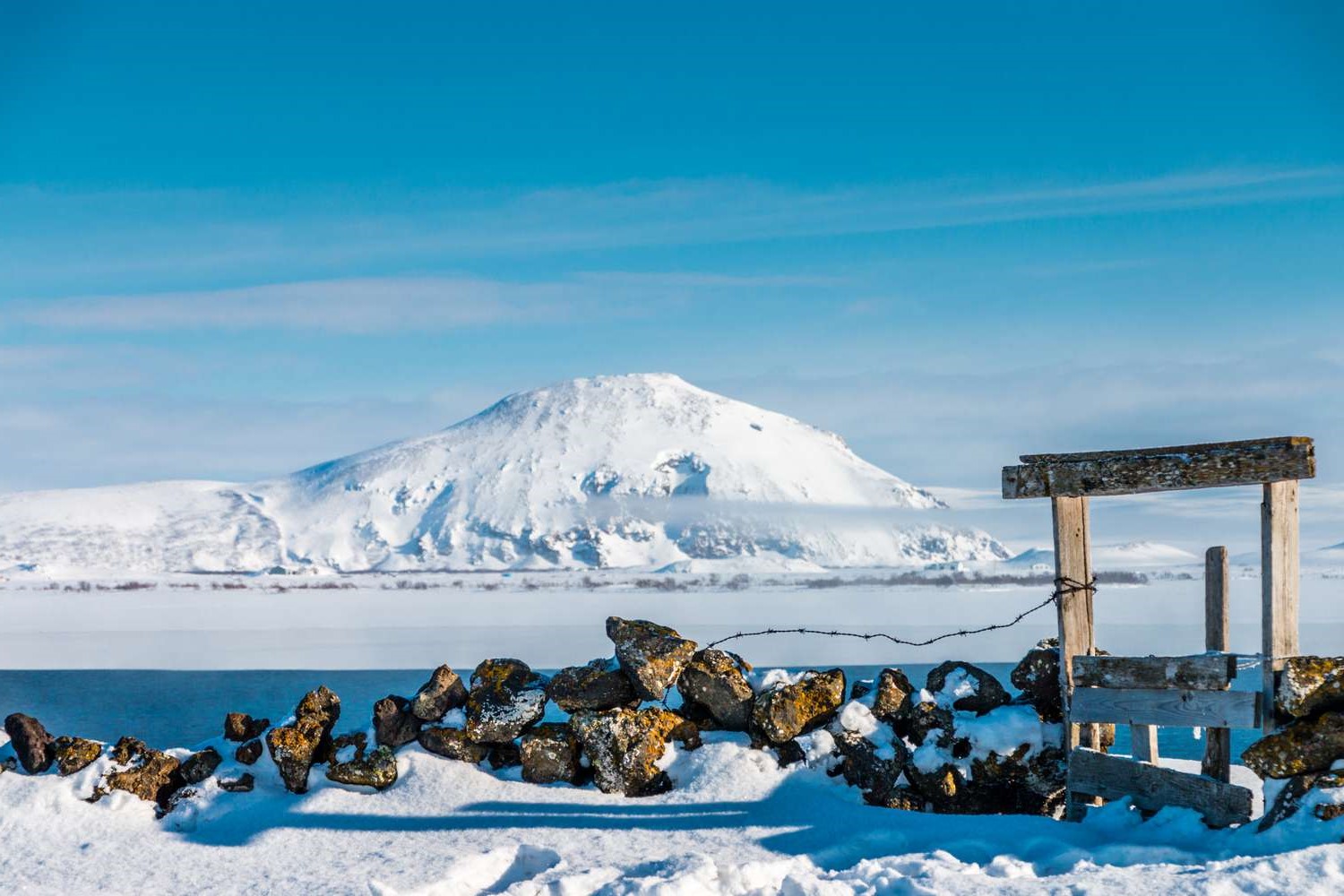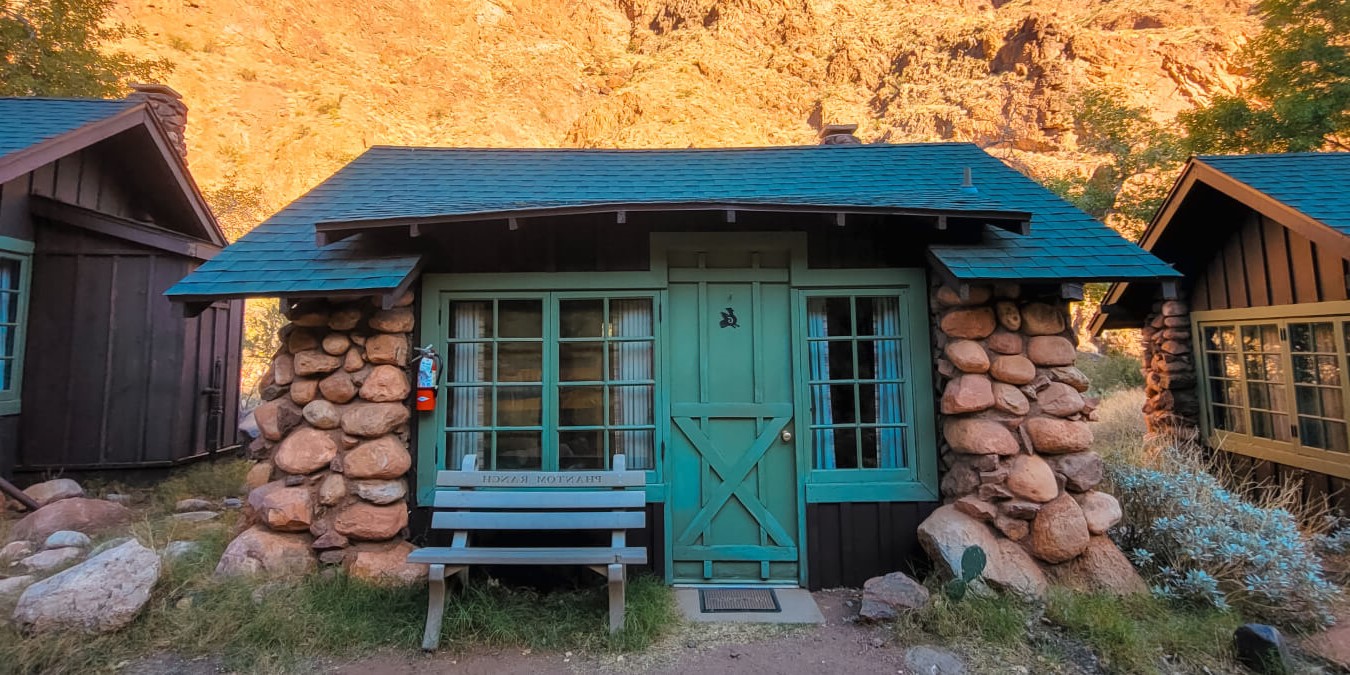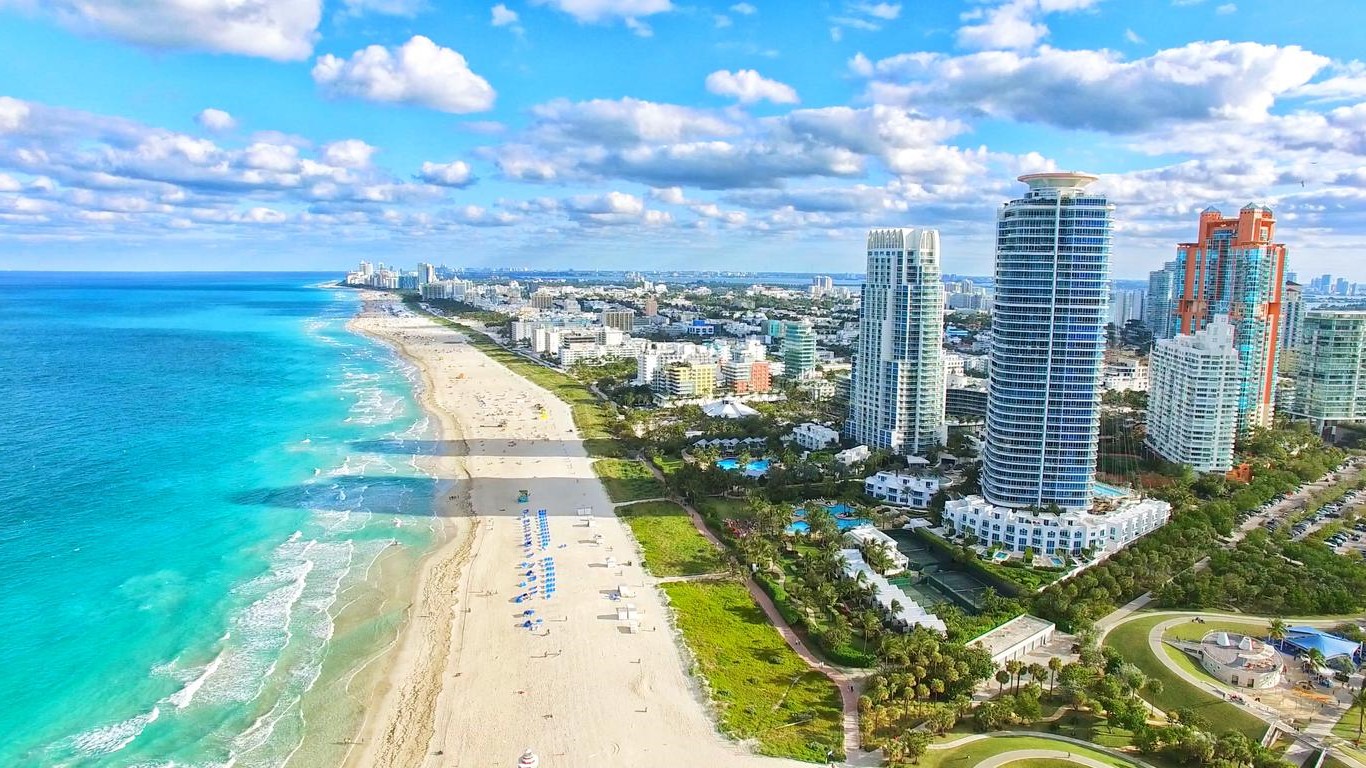Home>Weather and Climate>January Weather In Israel: Climate And Temperature Guide
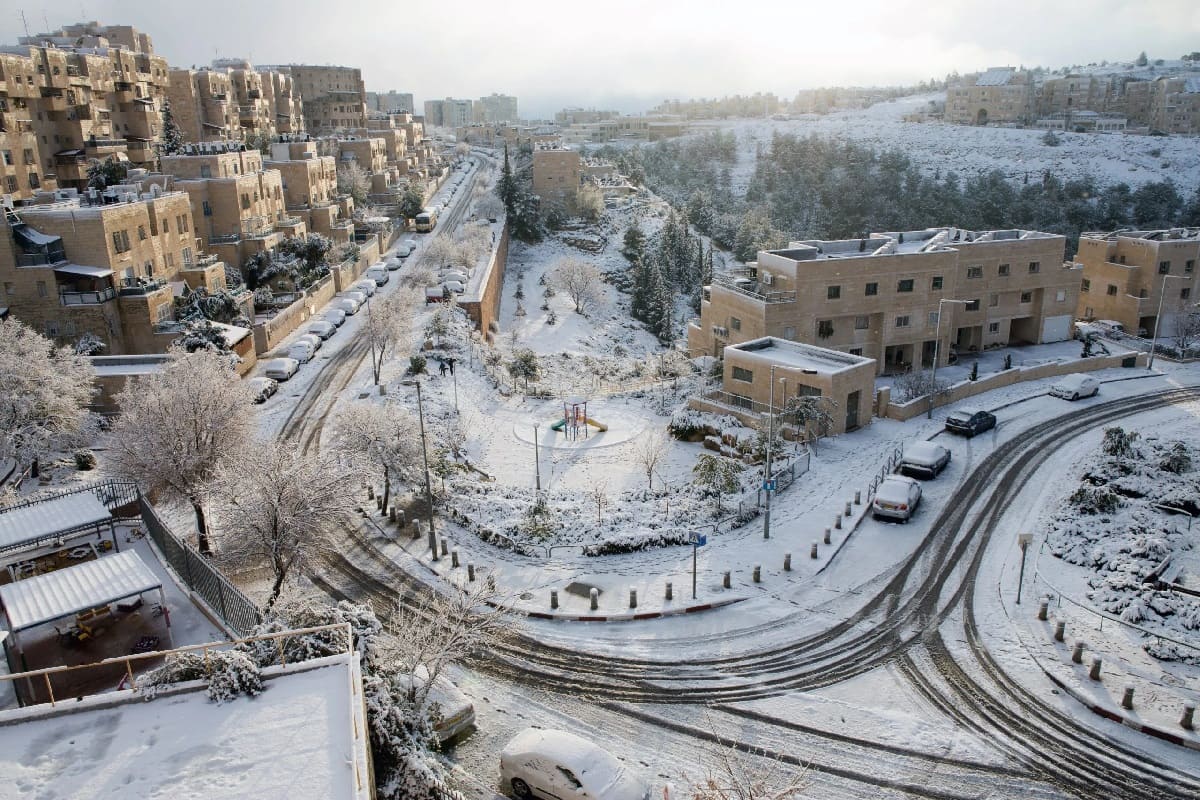

Weather and Climate
January Weather In Israel: Climate And Temperature Guide
Published: March 5, 2024
Plan your trip to Israel with our comprehensive guide to January weather. Learn about the climate, temperature, and what to expect during your visit. Discover the best time to experience Israel's weather and climate.
(Many of the links in this article redirect to a specific reviewed product. Your purchase of these products through affiliate links helps to generate commission for Temperatures.com, at no extra cost. Learn more)
Table of Contents
Introduction
Welcome to Israel, a land of diverse landscapes, rich history, and a climate that varies from region to region. As you plan your visit to this captivating country, understanding the weather patterns and climate conditions is essential for a comfortable and enjoyable experience. In this comprehensive guide, we will delve into the weather and climate of Israel, focusing on the month of January. Whether you're drawn to the ancient streets of Jerusalem, the vibrant beaches of Tel Aviv, or the serene beauty of the Negev Desert, knowing what to expect weather-wise will help you make the most of your journey.
Israel's climate is as diverse as its cultural tapestry, offering everything from Mediterranean coastlines to arid deserts and mountainous terrain. The country experiences a Mediterranean climate along the coast, characterized by hot, dry summers and mild, wet winters. Inland, the climate transitions to a more arid or semi-arid climate, with significant temperature variations between day and night. The southern regions, including the Negev Desert, exhibit desert climate characteristics, with scorching daytime temperatures and chilly nights.
January, being in the midst of winter, brings unique weather conditions to different parts of Israel. Understanding the average temperatures, precipitation patterns, and regional variations will enable you to pack appropriately and plan your activities accordingly. Whether you're seeking outdoor adventures, cultural explorations, or simply relaxation, knowing what to expect from the weather will enhance your travel experience.
Join us as we embark on a journey through Israel's climate and weather, uncovering the nuances of January's atmospheric tapestry. From the bustling city streets to the tranquil natural wonders, let's prepare for an unforgettable exploration of Israel's diverse landscapes and climates.
Read more: Key West January Temperature Guide
Understanding Israel's Climate
Israel's climate is a captivating mosaic of diverse weather patterns, shaped by its geographical location and varied topography. The country's climate can be broadly categorized into three main regions: the Mediterranean coastline, the inland mountainous areas, and the arid southern desert regions.
Along the Mediterranean coast, which includes cities like Tel Aviv and Haifa, the climate is predominantly Mediterranean, characterized by hot, dry summers and mild, wet winters. The proximity to the sea moderates the temperatures, resulting in pleasant conditions for much of the year. However, the coastal areas can experience occasional winter storms, bringing heavy rainfall and cooler temperatures.
Moving inland, towards the central highlands and Jerusalem, the climate transitions to a more continental type, with greater temperature variations between day and night. Summers are still hot and dry, while winters are cooler and can bring occasional snowfall, especially in the higher elevations. The mountainous terrain contributes to these temperature differentials, creating a unique microclimate that influences the weather patterns in this region.
Venturing further south, the landscape transforms into the arid and semi-arid regions of the Negev Desert. Here, the climate is characterized by scorching hot days and significantly cooler nights. Rainfall is scarce, and the terrain is marked by vast expanses of desert wilderness, punctuated by stunning geological formations and unique flora and fauna adapted to the harsh conditions.
The Dead Sea and the Jordan Valley, located in the Rift Valley, exhibit their own distinct climate, with extremely hot and dry conditions during the summer months and milder temperatures in winter. The Dead Sea, renowned for being the lowest point on Earth, experiences high temperatures year-round, making it a unique climatic phenomenon within Israel.
Overall, Israel's climate is a fascinating blend of Mediterranean, continental, and desert characteristics, offering a diverse range of weather experiences across its various regions. Understanding these climate nuances is crucial for travelers, as it allows for better preparation and planning, ensuring a fulfilling and enjoyable exploration of this remarkable country.
Average Temperature in January
In January, Israel experiences a diverse range of temperatures across its different regions, reflecting the country's varied climate. Along the Mediterranean coast, including popular cities like Tel Aviv and Haifa, the average daytime temperatures hover around 10-18°C (50-64°F). While the coastal areas enjoy milder winters compared to the inland regions, occasional rainfall and cooler evenings contribute to the overall winter ambiance.
Moving inland towards the central highlands and Jerusalem, the average temperatures in January range from 6-12°C (43-54°F). The higher elevations in this region can experience cooler temperatures, and it's not uncommon to witness occasional snowfall, particularly in Jerusalem and the surrounding areas. This creates a picturesque winter setting, adding a touch of enchantment to the historic landscapes.
In the southern regions, such as the Negev Desert and the Dead Sea, January brings daytime temperatures averaging around 18-23°C (64-73°F). However, it's important to note that the desert climate results in significant temperature differentials between day and night. While the days may be pleasantly warm, the nights can become notably cooler, often dropping to around 5-10°C (41-50°F). This dramatic temperature shift showcases the unique climatic characteristics of the desert regions, offering travelers a chance to experience both warmth and coolness within a single day.
The Jordan Valley, part of the Great Rift Valley, experiences daytime temperatures similar to the southern regions, averaging around 18-23°C (64-73°F). This valley, with its stunning geological formations and the iconic Dead Sea, presents a distinct climate that contributes to the overall diversity of Israel's weather patterns.
Understanding these average temperature ranges for January is crucial for travelers planning their visit to Israel. Whether strolling along the Mediterranean beaches, exploring the ancient streets of Jerusalem, or marveling at the desert landscapes, knowing what to expect in terms of temperatures allows for better preparation and enhances the overall travel experience. From mild coastal winters to cooler highland climates and the unique desert temperature differentials, January in Israel offers a captivating tapestry of temperatures, inviting exploration and discovery across its varied landscapes.
Weather Patterns in Different Regions
Israel's diverse topography gives rise to a fascinating array of weather patterns across its distinct regions. Understanding these weather nuances is essential for travelers seeking to explore the country's varied landscapes and climates.
Along the Mediterranean coastline, encompassing vibrant cities like Tel Aviv and Haifa, the winter weather brings a mix of mild temperatures and occasional rainfall. The proximity to the sea moderates the climate, resulting in relatively comfortable conditions. However, winter storms can bring heavy rainfall and cooler temperatures, creating a refreshing change from the summer heat.
Moving inland towards the central highlands and Jerusalem, the weather patterns shift to reflect a more continental climate. Here, the temperature differentials between day and night become more pronounced, contributing to cooler winters and occasional snowfall, especially in the elevated areas. The historic city of Jerusalem, with its ancient streets and iconic landmarks, takes on a serene charm during the winter months, offering a unique perspective for visitors.
In the southern regions, including the Negev Desert and the Dead Sea, the weather patterns exhibit the characteristics of a desert climate. Daytime temperatures are pleasantly warm, but the nights can become notably cooler, showcasing the dramatic temperature differentials typical of desert regions. This creates a captivating contrast, allowing travelers to experience both warmth and coolness within a single day. The vast expanse of the Negev Desert, with its otherworldly landscapes and unique geological formations, presents an unparalleled opportunity for exploration amid the desert's ever-changing weather dynamics.
The Jordan Valley, nestled within the Great Rift Valley, shares similarities with the southern regions in terms of daytime temperatures. The valley's unique climate, coupled with the presence of the iconic Dead Sea, adds an intriguing dimension to Israel's weather tapestry, inviting visitors to immerse themselves in the valley's natural wonders.
Overall, Israel's weather patterns in January offer a captivating blend of Mediterranean, continental, and desert climates, each contributing to the country's diverse and enchanting atmosphere. Whether it's the refreshing coastal rains, the serene snowfall in the highlands, or the striking temperature differentials in the desert, Israel's weather patterns beckon travelers to embark on a journey of discovery, unveiling the country's natural beauty in all its seasonal splendor.
What to Pack for January Travel
Packing for a January trip to Israel requires thoughtful consideration of the diverse weather conditions across the country's various regions. Whether you're exploring the coastal cities, venturing into the highlands, or immersing yourself in the desert landscapes, packing the right clothing and essentials will ensure a comfortable and enjoyable travel experience.
Read more: Puerto Vallarta Weather Guide for January
Coastal Regions
For visits to cities along the Mediterranean coast, such as Tel Aviv and Haifa, packing lightweight layers is essential. Daytime temperatures are relatively mild, ranging from 10-18°C (50-64°F), but occasional rainfall and cooler evenings necessitate carrying a waterproof jacket or umbrella. Comfortable walking shoes are a must for exploring the vibrant city streets and picturesque coastal promenades.
Inland and Highland Areas
If your itinerary includes destinations like Jerusalem and the central highlands, where average temperatures range from 6-12°C (43-54°F), packing warmer layers becomes crucial. A mix of long-sleeved shirts, sweaters, and a reliable winter coat will ensure comfort during cooler days and evenings. Additionally, sturdy footwear is recommended, especially if you plan to explore historical sites and hilly terrain.
Desert Adventures
For those embarking on desert excursions to the Negev Desert or the Dead Sea region, packing for temperature differentials is key. Daytime temperatures may reach 18-23°C (64-73°F), but the nights can become notably cooler, dropping to around 5-10°C (41-50°F). Packing a combination of lightweight, breathable clothing for the day and warmer layers for the evenings is advisable. A wide-brimmed hat, sunglasses, and sunscreen are essential for protection against the desert sun, while comfortable hiking shoes are ideal for exploring the rugged desert terrain.
General Essentials
Regardless of the specific regions you plan to visit, certain essentials should be included in your packing list. These may include a versatile travel adapter to accommodate different plug types, a sturdy water bottle for staying hydrated, and a reliable camera to capture the diverse landscapes and cultural experiences. It's also wise to carry a small first-aid kit, including basic medications and items for minor injuries, to ensure preparedness during your travels.
By packing thoughtfully for the varied climates and activities, you can fully embrace the enchanting experiences that Israel offers in January. Whether you're captivated by the coastal charm, the historical allure of ancient cities, or the rugged beauty of the desert, the right clothing and essentials will enhance your journey, allowing you to immerse yourself in the captivating tapestry of Israel's landscapes and cultures.
Read more: Israel’s Winter Chill Depths Unveiled
Activities and Events in January
January in Israel offers a vibrant tapestry of activities and events, inviting travelers to immerse themselves in the country's rich cultural heritage, natural wonders, and diverse recreational pursuits. From festive celebrations to outdoor adventures, there's something for every traveler to experience and enjoy during this captivating month.
Cultural Explorations
For those seeking cultural immersion, January presents a myriad of opportunities to explore Israel's historical and artistic treasures. The ancient city of Jerusalem, with its timeless landmarks and sacred sites, provides a captivating backdrop for cultural explorations. Visitors can wander through the narrow streets of the Old City, marvel at the Western Wall, and explore the historic quarters, gaining insights into the city's profound significance.
Additionally, January marks the celebration of Tu BiShvat, the Jewish New Year for Trees, a festival that honors the natural world and the environment. This occasion often features tree-planting activities, ecological initiatives, and festive gatherings, offering travelers a chance to participate in meaningful environmental conservation efforts while embracing the spirit of the holiday.
Outdoor Adventures
The diverse landscapes of Israel beckon outdoor enthusiasts to embark on exhilarating adventures. Along the Mediterranean coast, the mild winter temperatures create ideal conditions for leisurely strolls along the sandy beaches, invigorating seaside bike rides, and refreshing dips in the azure waters. The coastal promenades of cities like Tel Aviv come alive with a vibrant energy, offering a perfect blend of relaxation and recreation.
Inland, the central highlands and Jerusalem's surroundings provide opportunities for invigorating hikes, offering panoramic views of the rugged terrain and historical sites. The cooler temperatures and occasional snowfall in the elevated areas add a touch of enchantment to outdoor explorations, making it an ideal time for nature enthusiasts to revel in the scenic beauty of the highlands.
Venturing into the southern regions, the Negev Desert becomes a playground for adventure seekers, offering thrilling activities such as desert treks, camel rides, and stargazing experiences. The unique geological formations, expansive dunes, and tranquil desert oases create an otherworldly backdrop for unforgettable outdoor escapades.
Festivals and Events
January also hosts a variety of cultural festivals and events that showcase Israel's vibrant arts, music, and culinary traditions. The vibrant city of Tel Aviv comes alive with cultural festivals, live music performances, and culinary fairs, offering a delightful fusion of entertainment and gastronomic delights. Visitors can indulge in the city's dynamic arts scene, savoring diverse cuisines and experiencing the pulse of contemporary Israeli culture.
Furthermore, January often features international music festivals and artistic exhibitions, drawing artists and enthusiasts from around the world. The eclectic blend of traditional and contemporary expressions creates a captivating atmosphere, providing travelers with opportunities to engage with the country's artistic tapestry and immerse themselves in its creative spirit.
In essence, January in Israel presents a captivating blend of cultural, outdoor, and artistic experiences, inviting travelers to embrace the country's diverse offerings. Whether it's delving into the historical allure of ancient cities, embarking on outdoor escapades amid stunning landscapes, or immersing in the vibrancy of cultural festivals, Israel's January itinerary promises a tapestry of enriching experiences, ensuring a memorable and fulfilling journey for every traveler.
